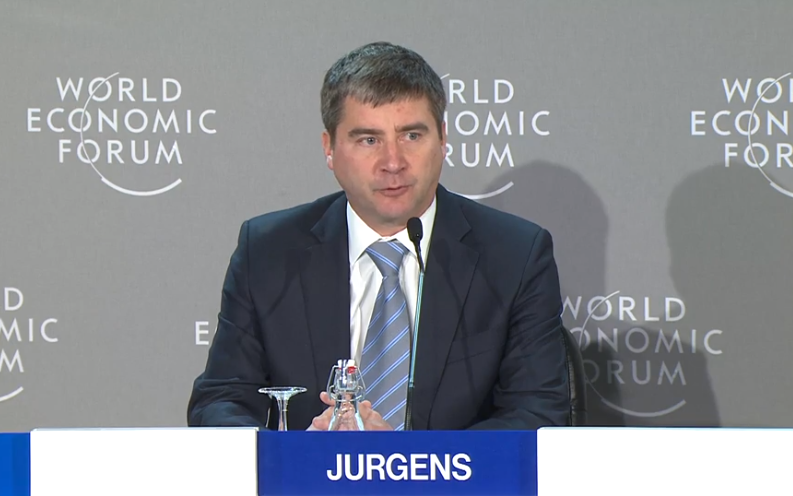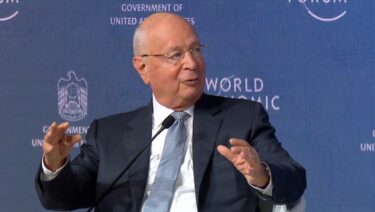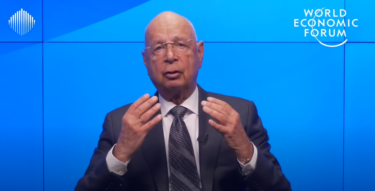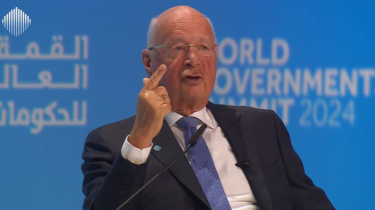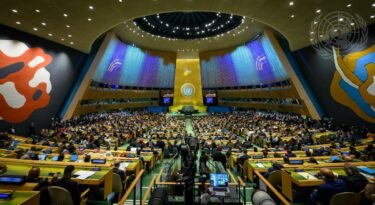Will a ‘catastrophic cyber event’ really happen in the coming years, or are the unelected globalists using this perceived crisis to consolidate power through public-private partnerships? perspective
Due to geopolitical instability, a “catastrophic cyber event” is likely to occur in the next two years, according to the World Economic Forum (WEF).
Speaking at the WEF Annual Meeting in Davos on Wednesday, WEF managing director Jeremy Jurgens highlighted the “most striking finding” from a recent survey on cybersecurity.
“Geopolitical instability makes a catastrophic cyber event likely in the next two years” — Jeremy Jurgens, WEF Annual Meeting, 2023
“The most striking finding that we’ve found is that 93 percent of cyber leaders, and 86 percent of cyber business leaders, believe that the geopolitical instability makes a catastrophic cyber event likely in the next two years,” said Jurgens.
“This far exceeds anything that we’ve seen in previous surveys,” he added.
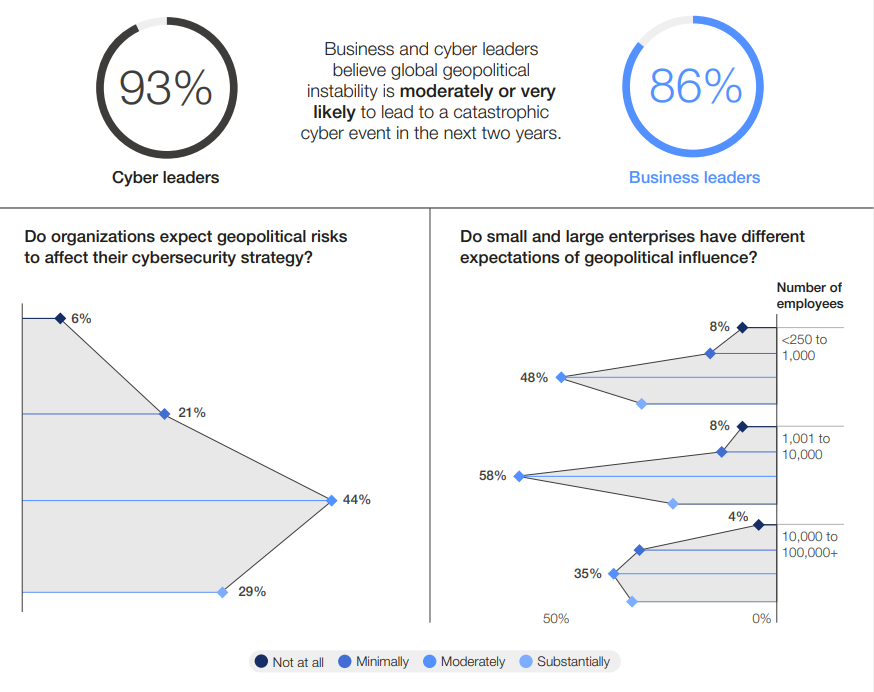
“Cyber attacks can spread unpredictably” — Jeremy Jurgens, WEF Annual Meeting, 2023
The WEF managing director went on to say that “cyber attacks can spread unpredictably.”
“We saw this in the case of the ViaSat attack that was done on Ukraine, which was initially intended to shut down communication services for the Ukrainian military, but as well closed-off parts of electricity production across Europe,” he added.
“If cyberthreats continue without mitigation, governments will continue to retaliate against perpetrators (actual or perceived), leading to open cyberwarfare, further disruption for societies” — WEF Global Risks Report, 2022
For years, the unelected globalists at the WEF and their partners have been prepping for a cyber pandemic that would disrupt all of society.
According to the WEF Global Risks Report 2022, retaliations to cyberthreats — whether actual or perceived — could lead to open cyberwarfare.
“If cyberthreats continue without mitigation, governments will continue to retaliate against perpetrators (actual or perceived), leading to open cyberwarfare, further disruption for societies and loss of trust in governments’ ability to act as digital stewards,” the WEF report reads.
If the unelected globalists at the WEF prove to be prophetic in their assessment, it would mean that governments wouldn’t need confirmation of an actual perpetrator before retaliating — just a perceived one.
“I believe that there will be another crisis. It will be more significant. We need to actually start preparing for that now” — Jeremy Jurgens, Cyber Polygon, 2020
Speaking remotely at the annual Cyber Polygon cybersecurity training event in 2020, which was aimed at averting a cyber pandemic, Jurgens said he believed that there would be another crisis, and that it would spread much faster than COVID.
“I would anticipate that when we do see this next crisis, it will be faster than what we’ve seen with COVID,” said Jurgens, adding, “the exponential growth rate will be much steeper, the impact will be greater, and as a result the economic and social implications will be even more significant.”
“I would anticipate that when we do see this next crisis, it will be faster than what we’ve seen with COVID” — Jeremy Jurgens, Cyber Polygon, 2020
The 2022 edition of the Moscow-based Cyber Polygon event was postponed last year, and a new date still hasn’t been set.
Discussions coming out of Cyber Polygon 2021 concluded with the desire to immunize the internet, demonize cryptocurrencies, and prop-up centralized systems of governance through a closer merger of corporations and states (public-private partnerships).
“A lack of cybersecurity has become a clear and immediate danger to our society worldwide” — Klaus Schwab, Cyber Polygon, 2021
World Economic Forum founder Klaus Schwab also warned at Cyber Polygon 2021 that a “lack of cybersecurity” had become “a clear and immediate danger to our society worldwide.”
The unelected globalist went on to explain in July, 2021, “We need vaccines to immunize ourselves. The same is true for cyberattacks.
“Here, too, we have to move from simple protection to immunization. We need to build IT infrastructures that have digital antibodies built-in inherently to protect themselves.”
“We all know, but still pay insufficient attention to, the frightening scenario of a comprehensive cyber attack, which would bring a complete halt to the power supply, transportation, hospital services, our society as a whole” — Klaus Schwab, Cyber Polygon, 2020
“The COVID-19 crisis would be seen […] as a small disturbance in comparison to a major cyber attack” — Klaus Schwab, Cyber Polygon, 2020
At Cyber Polygon 2020, Schwab warned of a coming cyber pandemic that would shock society to its core.
“We all know, but still pay insufficient attention to, the frightening scenario of a comprehensive cyber attack, which would bring a complete halt to the power supply, transportation, hospital services, our society as a whole,” said Schwab.
“The COVID-19 crisis would be seen in this respect as a small disturbance in comparison to a major cyber attack,” he added.
“A cyber attack with COVID-like characteristics would spread faster and farther than any biological virus” — World Economic Forum, 2021
According to the WEF video above, COVID-19 was known as an anticipated risk, and the same goes for its digital equivalent.
What’s more, “A cyber attack with COVID-like characteristics would spread faster and farther than any biological virus.
“Its reproductive rate would be around 10 times greater than what we’ve experienced with the coronavirus.”
The unelected globalists will take advantage of every crisis to exert their influence on politicians, business leaders, and civil society.
It doesn’t matter if the crisis has to do with cybersecurity, climate change, poverty, or a global pandemic — every solution the WEF puts forward calls for public-private collaborations — a closer merger of corporation and state.
Will a “catastrophic cyber event” really happen in the coming years, or are the unelected globalists using this perceived crisis to further consolidate power while advancing their global digital governance agendas through public-private partnerships?



